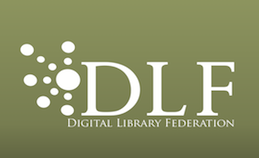Towards A New Agenda for Humanities Data Curation
Constellation D: Tuesday, November 1, 8:30 – 10:00AM
At the conclusion of the Digital Humanities 2011 Conference, the Data Curation Education Program for the Humanities (DCEP-H) and CenterNet convened a group of experts from the digital humanities, the digital library community, and major U.S. funding agencies to discuss strategies for improving the curation of digital humanities data. The timing of this summit reflected a belief that data curation, the active and on-going management of data from creation to re-use and long-term preservation, is now an emerging problem for the humanities, and that, more importantly, the convergence of digital library development and digital humanities research has created a unique opportunity to re-imagine divisions of labor, educational policies and practices, and the public role of the humanities.
Summit participants identified four key activities that could have a substantial even radical impact on the evolution of institutions, professions, and scholarship over the next decade:
- Make data curation a key form of public engagement and advocacy for the humanities.
- Integrate the training of prospective scholars and information professionals into an interdisciplinary curriculum on scholarly communication and data curation.
- Realign professional roles, responsibilities, and promotion/tenure criteria with changes in institutional needs as well as practices and tools for curating data.
- Re-analyze the content of data curation curricula to support involvement by information professionals at deeper levels and earlier stages in the data development process.
Building on these materials as well as further analysis, we are developing specific recommendations for changes in workforce training and staffing, education, and institutional support. A final version of a white paper presenting our results will be completed in Winter 2011.
Interested session participants can review the agenda and issues paper from the post-Digital Humanities 2011 Humanities Data Curation Summit at the summit website [http://cirssweb.lis.illinois.edu/paloalto/]. Using key themes from the earlier meeting as a springboard, this session will continue the discussion began in Palo Alto, eliciting additional ideas and issues from from the digital library community as well as take steps toward refining and operationalizing community engagement with curation of humanities data.
DCEP-H is an IMLS-funded project hosted by the Center for Informatics Research in Science and Scholarship (CIRSS) at the Graduate School of Library and Information Science, University of Illinois, Urbana-Champaign.
Session Leaders
Allen Renear is a faculty member at the Graduate School of Library and Information Science, University of Illinois at Urbana-Champaign, where he teaches courses and leads research in information modeling, data curation, and digital publishing. He is involved in a number of data curation projects in the GSLIS Center for Informatics Research in Science and Scholarship (CIRSS).
Trevor Muñoz is Associate Director of the Maryland Institute for Technology in the Humanities (MITH) as well as Assistant Dean for Digital Humanities Research at the University of Maryland Libraries. Trevor holds an MA in Digital Humanities from the Department of Digital Humanities at King’s College London and a MS in Library and Information Science from the Graduate School of Library and Information Science at the University of Illinois, Urbana-Champaign. He specializes in curation of humanities data, with a particular emphasis on developing joint research ventures between libraries and digital humanities research centers.
Katherine L. Walter is the Chair of Digital Initiatives & Special Collections in the University of Nebraska–Lincoln (UNL) Libraries, and co-directs the Center for Digital Research in the Humanities at UNL with Kenneth Price. A joint initiative of the University of Nebraska–Lincoln Libraries and the UNL College of Arts & Sciences, the Center for Digital Research in the Humanities is advancing collaborative, interdisciplinary research by creating unique digital content, developing text analysis and visualization tools, and encouraging the use and refinement of international standards.
